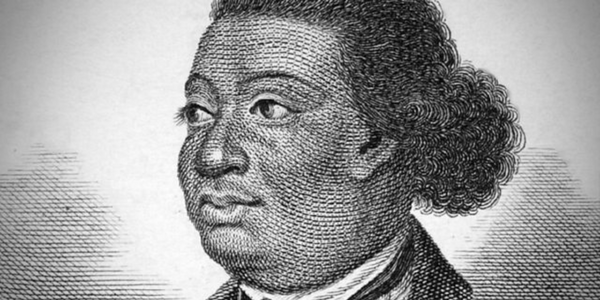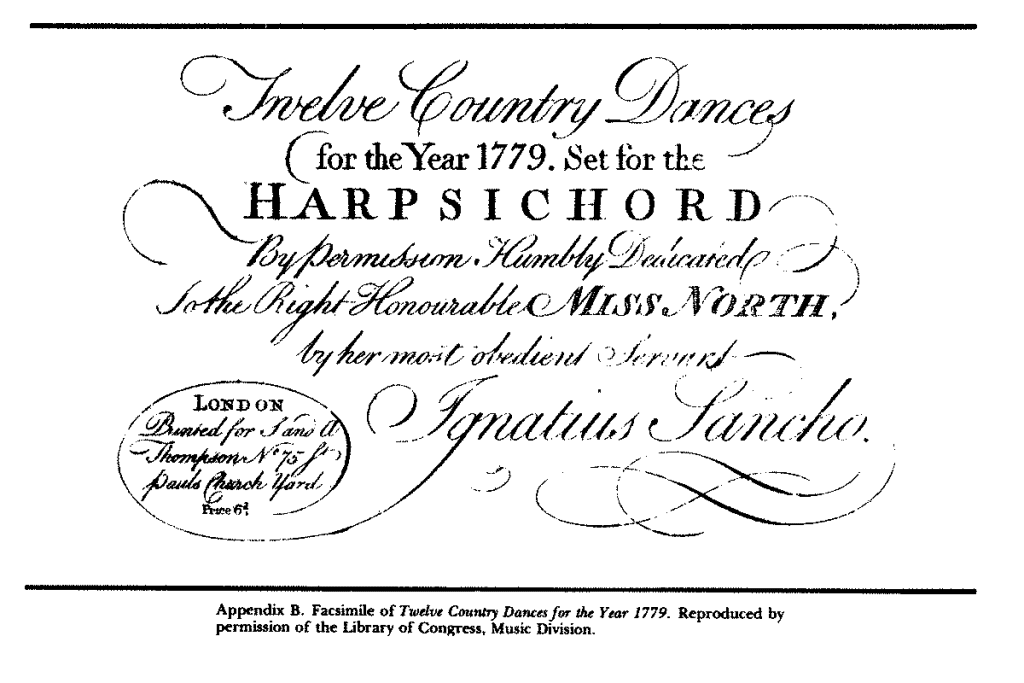
THIS WEEK IN PIANO HISTORY, we remember composer (Charles) Ignatius Sancho who died on December 14, 1780. Sancho, also an abolitionist and writer, impacted eighteenth-century British literature and culture. Sancho’s life began tragically as he was born on a slave ship headed for South America. Both of his parents died in his infancy—his mother died from disease and his father committed suicide in order to avoid slavery.
His name is similarly complicated. Sancho went by Ignatius (given at his baptism) in his later life after he stopped using his first name, Charles.1 Compared to the squire of Don Quixote named Sancho Panza, he received the last name Sancho due to his lifelong struggle with his weight.2 He worked as a slave in Greenwich, England before being discovered by John, Second Duke of Montagu. John was impressed with Sancho and frequently invited him to the Montagu house where he was later hired by the Duchess of Montagu. When she passed away, the salary and inheritance he received helped him to purchase property, vote in British parliamentary elections, and continue his self education. After a challenging time in which he lost most of that money, Sancho went back to work for the Montagu family and became acquainted with a number of important members of British society. From there he later opened a grocery shop in Westminster with his wife, before dying in 1780 from complications related to gout.
After his death, his letters were published in a subscription series and were extremely popular. His writings are important documents from the time, giving firsthand accounts of slavery, which were uncommon at the time due to illiteracy of slaves. His intellect and impressive writing style made a large impact on British people of the time, showing that African slaves were capable of great talents and abilities. His writings were even used to help justify the end of the Slave Trade. In addition to being the presumed first Black man to vote in Britain, Sancho was also the first to receive an obituary in the British press, demonstrating his recognized place in eighteenth-century British society.3
Sancho wrote a number of pieces that involve the keyboard including A New Collection of Songs, Twelve Country Dances for the Year 1779 for harpsichord, and a set of minuets and other dances. Many are dedicated to members of the upper class and even British royalty. Although Sancho was an amateur musician and his compositions are often on a smaller scale, his works are of significant pedagogical value, demonstrating English genres in the popular galant style of the time. Sancho’s Twelve Country Dances for the Year 1779, for instance, contains a number of early-intermediate level dances in Baroque and early-Classical styles.

Some of Sancho’s music can be heard in the video recording below by pianist Duane Hulbert and in this recording of Sweetest Bard performed by countertenor Reginald Mobley and keyboardist Henry Lebedinsky.
Want to learn more about Ignatius Sancho? He’s one of the composers featured in our self-paced, online course: Unsung Heroes in Piano Pedagogy: 20 Pieces by Black Composers to Use in Your Studio Now. Learn more and enroll here!

Sources
- Vincent Carretta, “Sancho, (Charles) Ignatius (1729?–1780), author,” Oxford Dictionary of National Biography (23 Sep. 2004; Accessed 27 Nov. 2022), www-oxforddnb-com.uc.idm.oclc.org/view/10.1093/ref:odnb/9780198614128.001.0001/odnb-9780198614128-e-24609.
- Ibid.
- Ibid.